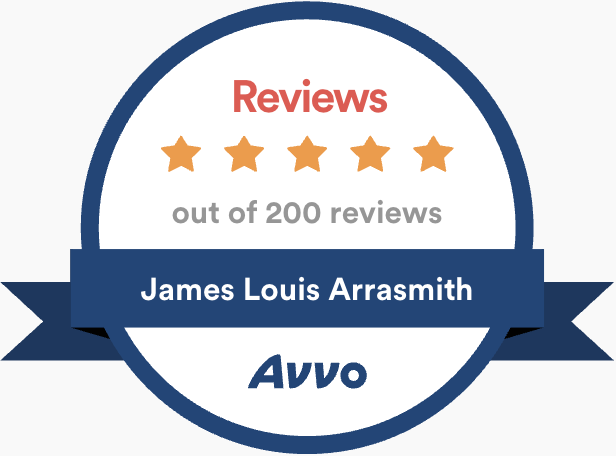AB 1755: California’s Lemon Law Reform (2025 Update)

Introduction
In 2024, California passed Assembly Bill 1755 (AB 1755), a groundbreaking reform to the state’s Lemon Law aimed at streamlining the process for consumers seeking restitution or replacement of defective vehicles. This reform aligns with the broader scope of California lemon laws, which safeguard individuals who have purchased or leased defective vehicles by requiring manufacturers to either repurchase, replace, or compensate consumers if a vehicle cannot be repaired after a reasonable number of attempts. Authored by Assemblymember Ash Kalra and Senator Tom Umberg, the bill introduces new requirements for litigation, mandatory mediation, and stricter timelines for filing claims.
This article provides a detailed breakdown of AB 1755, explaining its key provisions, real-world impact, and how it changes the landscape for consumers and automakers in California.
What is California’s Lemon Law?

Before diving into AB 1755, it’s essential to understand California’s Lemon Law, officially known as the Song-Beverly Consumer Warranty Act.
The California Lemon Law applies to various consumer goods purchased or leased for personal use, including vehicles under warranty, offering protection when a manufacturer fails to repair a product after several attempts.
Definition:
The Lemon Law protects consumers who purchase or lease new motor vehicles with significant manufacturing defects that affect their safety, functionality, or value.
The lemon law rules govern consumer rights when purchasing defective vehicles, detailing specific regulations regarding timelines for filing claims and the scope of coverage, including recent changes that impact car buyers in California.
When Does a Vehicle Qualify as a Lemon? Reasonable Number of Repair Attempts
A vehicle is considered a lemon if:
- The manufacturer fails to repair the same defect after a reasonable number of repair attempts.
- The defect significantly impairs the vehicle’s use, value, or safety.
- The vehicle is still under the manufacturer’s warranty.
Did You Know?California has one of the strongest Lemon Laws in the United States, offering more consumer protections than many other states.
What Defects Does the Law Cover?
The California Lemon Law covers a wide range of defects that can affect a vehicle’s use, value, or safety. These defects can include, but are not limited to:
- Engine problems, such as excessive oil consumption or engine failure
- Transmission issues, like slipping or hesitation
- Electrical system malfunctions, including faulty wiring or malfunctioning accessories
- Brake problems, such as spongy pedals or faulty brake pads
- Suspension issues, like uneven tire wear or loose suspension components
- Safety-related defects, including faulty airbags or anti-lock braking systems (ABS)
The law also covers defects that, while not safety-related, still substantially impair the vehicle’s use or value. These can include:
- Faulty infotainment systems or navigation systems
- Malfunctioning climate control or heating systems
- Defective seats or upholstery
- Faulty exterior or interior trim
It’s important to note that the California Lemon Law does not cover defects caused by the owner’s misuse or neglect of the vehicle. Additionally, defects resulting from normal wear and tear are not covered under the law. By understanding what the California Lemon Law covers, consumers can better navigate their rights and seek appropriate remedies for their defective vehicles.
Key Provisions of AB 1755

1. Statute of Limitations
- Under AB 1755, consumers must file a Lemon Law claim within one year after their express warranty expires and no later than six years from the original delivery date.
- Tolling provisions (pausing the statute of limitations) apply in specific cases, such as ongoing repair attempts and the number of repair attempts made to address the vehicle defect.
Explanation:The statute of limitations refers to the legal deadline for filing a lawsuit. If consumers miss this deadline, their case can be dismissed, regardless of its merits.
2. Pre-Litigation Notice Requirement
Starting April 1, 2025, consumers must:
- Provide written notice to the manufacturer at least 30 days before filing a lawsuit.
- Include the following in the notice:
- Owner’s contact details
- Vehicle Identification Number (VIN)
- Description of the issue
- Request for a replacement or refund
Why This Matters:
This notice ensures manufacturers have an opportunity to resolve disputes before they escalate into lengthy court battles.
3. Mandatory Mediation
AB 1755 requires mandatory mediation before a case proceeds to court.
- All discovery processes (evidence collection, depositions, etc.) are paused during mediation.
- Mediation must involve a neutral third-party mediator.
What is Mediation?
Mediation is an out-of-court resolution process where a neutral third party helps both sides reach an agreement.
4. Sanctions for Non-Compliance
From January 1, 2025, courts can impose sanctions on any party that fails to comply with AB 1755 requirements.
- Sanctions may include fines, dismissal of claims, or other penalties.
Real Case Example:
In past Lemon Law cases, delays in pre-litigation notices led to dismissed claims. AB 1755 ensures this process is standardized, reducing procedural errors.
The Lemon Law Process

The California Lemon Law process is designed to provide a fair and efficient way for consumers to resolve disputes with manufacturers over defective vehicles. Here’s an overview of the process:
- Notify the Manufacturer: The consumer notifies the manufacturer of the defect and provides an opportunity for the manufacturer to repair the vehicle.
- Reasonable Number of Attempts: If the manufacturer is unable to repair the vehicle after a reasonable number of attempts, the consumer may file a claim with the manufacturer.
- Settlement Offer: The manufacturer may offer to settle the claim by providing a refund, replacement vehicle, or other compensation.
- Filing a Lawsuit: If the manufacturer and consumer are unable to reach a settlement, the consumer may file a lawsuit against the manufacturer.
- Court Review: The court will review the evidence and determine whether the vehicle is a “lemon” under the California Lemon Law.
- Compensation: If the court finds that the vehicle is a lemon, the manufacturer may be required to provide a refund, replacement vehicle, or other compensation to the consumer.
This structured process ensures that consumers have a clear path to seek remedies for their defective vehicles, while also providing manufacturers with an opportunity to address issues before they escalate to litigation.
How AB 1755 Benefits Consumers

1. Faster Resolutions
Mandatory mediation reduces court congestion and expedites claim resolutions.
2. Clearer Guidelines
Written notice requirements ensure transparency between consumers and manufacturers.
3. Extended Legal Protection
Defined timelines prevent manufacturers from using legal loopholes to avoid liability.
Did You Know?
The average Lemon Law case in California previously took over 18 months to resolve. AB 1755 aims to cut this time significantly through mediation.
How AB 1755 Impacts Manufacturers
1. Increased Accountability
Automakers must act swiftly upon receiving pre-litigation notices to avoid legal complications.
2. Cost of Compliance
Mandatory mediation and sanctions increase the cost of non-compliance.
3. Opportunity for Early Settlement
The new pre-litigation notice and mediation requirements offer automakers a chance to resolve disputes before facing costly litigation.
Real Case Example:
In past Lemon Law disputes, manufacturers often delayed settlements, leading to higher legal costs. AB 1755 creates a structured timeline to prevent such delays.
Complex Terms Explained
Express Warranty: Manufacturer’s Warranty
A written guarantee from the manufacturer that a product will meet certain standards of quality and reliability.
In the context of California’s lemon law, a vehicle’s warranty specifically applies to disputes regarding serious warranty defects that manufacturers are unable to fix.
Statute of Limitations:
The maximum time period allowed by law for initiating a legal action.
Mediation:
A conflict-resolution process involving a neutral third-party mediator to help disputing parties reach an agreement.
Pre-Litigation Notice:
A formal communication sent to the other party before initiating a lawsuit, outlining concerns and desired resolutions.
Lemon law attorneys play a crucial role in helping consumers navigate these legal processes and secure compensation.
State Agencies and Resources
There are several state agencies and resources available to help consumers navigate the California Lemon Law process. These include:
- The California Department of Motor Vehicles (DMV): The DMV is responsible for enforcing the California Lemon Law and providing information to consumers about their rights and responsibilities.
- The California Attorney General’s Office: The Attorney General’s Office provides information and resources to consumers about the California Lemon Law and can assist with filing a complaint against a manufacturer.
- The California Department of Consumer Affairs: The Department of Consumer Affairs provides information and resources to consumers about the California Lemon Law and can assist with filing a complaint against a manufacturer.
- The National Highway Traffic Safety Administration (NHTSA): The NHTSA provides information and resources to consumers about vehicle safety and can assist with filing a complaint against a manufacturer.
Consumers can also contact a lemon law attorney for assistance with navigating the California Lemon Law process. An experienced lemon law attorney can provide guidance on the law and help consumers to file a claim against a manufacturer, ensuring that their rights are protected throughout the process.
FAQs About AB 1755
1. Who does AB 1755 apply to? It applies to California consumers who purchased or leased a defective vehicle covered by an express warranty. This includes most new vehicles purchased or leased in California, as well as used vehicles under warranty.
2. What happens if I miss the pre-litigation notice requirement? Failure to provide notice may result in dismissal of your lawsuit.
3. How long do I have to file a Lemon Law claim under AB 1755? You must file within one year after the warranty expires and no later than six years from the vehicle’s delivery date.
4. Is mediation mandatory under AB 1755? Yes, mediation is required before proceeding to litigation.
Real Case Law Example: California Lemon Law Dispute
In a 2021 Lemon Law case in California, a consumer’s lawsuit was dismissed because they missed the statute of limitations deadline by just two weeks. With AB 1755, these deadlines are more clearly defined, reducing ambiguity and errors.
The Lemon law also applies to a used car, provided it is under warranty, which can significantly affect consumer rights by offering protections against defective pre-owned vehicles.
Conclusion
AB 1755 represents a pivotal reform in California’s Lemon Law, offering clearer guidelines, faster resolutions, and improved transparency for both consumers and automakers.
Whether you’re a vehicle owner dealing with repeated defects or a manufacturer navigating compliance, understanding AB 1755 is crucial for protecting your rights and responsibilities.
For official updates and further details, visit the California Legislative Information website.
Related Terms: Lemon law work, lemon law presumes, Tanner Consumer Protection Act, new car, car warranty,
Next Articles
SB 1100 California: New Driver’s License Requirements for Job Listings
AB 2863: California’s New Automatic Subscription Renewal Law
How Much Divorce In California? A Comprehensive Guide
Understanding the Bane Act: Key Insights for Civil Rights Litigation
Understanding CFRA: Essential Insights for California Family Leave













